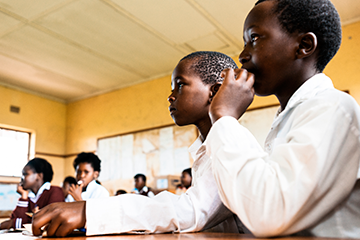School enrolment for 2018

The deadline for applications for 2018 enrolment at Western Cape schools is Friday, 24 March 2017.
The deadline applies in particular to children who are entering Grade 1 or Grade 8 in 2018, and children who are changing schools.
School admissions will open on Monday, 6 February 2017, for all public schools and will close on Friday, 24 March 2017.
You have to apply before the end of the first term of 2017 for 2018, to enable schools to process applications during the second term.
We have to implement measures during the third term to accommodate all children needing placement in 2018.
The sooner we know how many learners need placement and where, the sooner we can help our parents to find possible alternatives, or provide assistance, should they be unable to find placement at various schools.
It's also important for schools and the education department, to know as soon as possible how many learners they have to cater for, so that they can plan ahead.
It’s a good idea to apply to more than 1 school at a time because there is a chance your school of choice may be full.
Once you've applied, the school will let you know in writing whether your application has been successful. If your child has been accepted, you will need to confirm acceptance in writing.
We urge parents not to wait for the written offer before applying to another school, and also we encourage parents to accept the next school of choice if your first choice is full.
Schools that are unable to accommodate your child will refer you to the relevant WCED district office if your application has been unsuccessful so that district officials can help you find a place your child.
Required documents
You need to provide copies of the following documents with your application:
- a certified copy of your child’s birth certificate,
- proof of residence or work address,
- immunisation card for Grade 1 (if your child is starting primary school),
- transfer card or the latest report for learners who've already been to school, and
- study permits for legal immigrants.
Feeder areas 
School feeder areas refer to the geographic area from which students are eligible to attend a local school. The Western Cape Government, however, doesn't determine feeder zones or specific areas for schools.
However, school governing bodies may determine admission policies in terms of the South African Schools Act. Some schools give preference to learners from local communities, while others accept learners from further afield.
Schools of choice
We can't guarantee placement at schools of choice, even if these are the closest to your home. We encourage you to accept the next choice of school if the first choice is full.
Focus schools
Some schools specialise in specific subjects. For example, we have focus schools for arts and culture, as well as maths, science and technology, among others. Application processes may consist of additional requirements.
Compulsory schooling
School is compulsory for all learners from the age of 7 until the last day of the school year in which the learner turns 15 or completes Grade 9.
More information
You can also have a look at the frequently asked questions for more information or read the press release, WCED announces deadline for 2018 school enrolment..
The Western Cape Education Department maintains an up-to-date database of schools and related facilities. To search this database use the Find-a-School search facility.
More information
- Western Cape Education Department
- School districts
- Schools offering Grade R
Campaign radio ads
Afrikaans
English
isiXhosa


